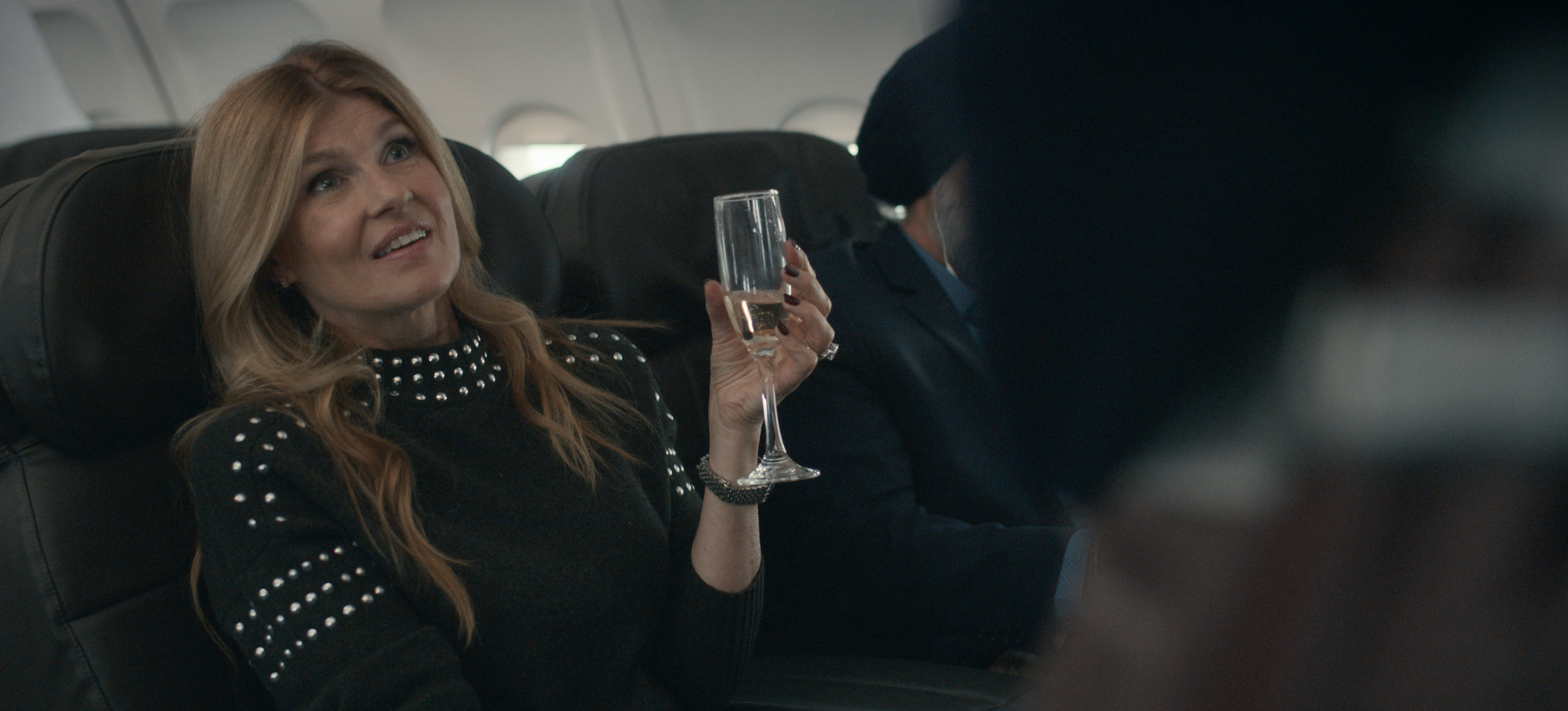
Connie Britton in Dear Edward
Apple TV+
In the Apple TV+ drama Dear Edward, a jet falls out of the sky over Colorado, killing everyone on board except 12-year-old Edward Adler. Nicknamed “Miracle Boy” by a media thirsty for inspiration porn, he doesn’t exactly feel lucky; his parents and beloved older brother are dead, he’s sent to live with a bitter aunt (Taylor Schilling), and his battle with post-traumatic stress is just beginning. “Sometimes,” says Edward, played by luminous newcomer Colin O’Brien, “I feel like the crash is still sitting on that field, and it’s never gonna stop burning.”
It’s an apt metaphor for the series’ central theme: grief. Unlike plane-crash thrillers from Lost to Yellowjackets, Dear Edward, premiering Feb. 3, is no puzzle box. Adapted by Friday Night Lights and Parenthood creator Jason Katims from the novel by Ann Napolitano, it’s a warmhearted but uneven ensemble drama grounded in a support group for the victims’ families.
Along with Schilling’s Lacey, who struggles to help Edward heal, we meet Dee Dee (Lights alum Connie Britton), a rich empty nester untangling her late husband’s web of secrets. Broke, pregnant, and estranged from her own family, Linda (Amy Forsyth) reaches out to the parents of her fiancé, who never so much as mentioned her to them before he perished. In a story line that often feels like an entirely different show, AOC-esque idealist Adriana (Anna Uzele) vies to replace her Harlem-congresswoman grandmother, a crash casualty, while falling for the Ghanaian brother (Idris Debrand) and daughter (Khloe Bruno) of another passenger. Tertiary characters unnecessarily expand the collage of love, lies, and impulsive behavior.
Katims, who was putting viewers in their feelings before This Is Us made tear-jerking a trend, was a natural choice to adapt Napolitano’s emotional book. But his weepy sensibility, distributed across half a dozen intersecting plots and hammered home by a plaintive indie-folk soundtrack, makes for a crushingly earnest melodrama. Despite many capable performances, few characters get enough screen time to evolve into more than stock types with generic problems. The sole exception, until its pat conclusion, is the story of the precocious, anxious, angry, erratic Edward. If only Katims hadn’t been so invested in depicting grief writ large, he might have created a genuinely moving portrait of one very specific experience with it.
Contact us at [email protected].


